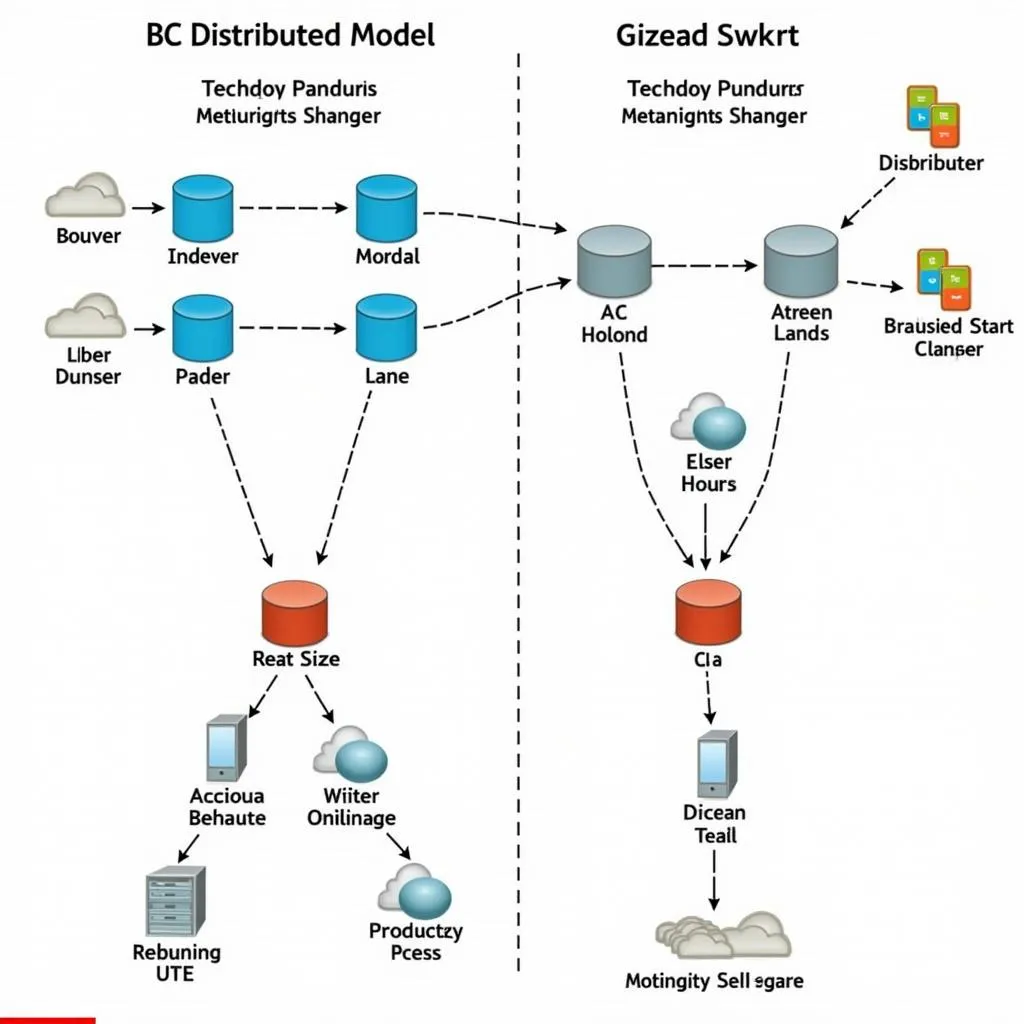BC vs Jenkins: Understanding the Core Differences and Choosing the Right Tool
October 9, 2024When it comes to building robust and efficient software delivery pipelines, choosing the right tools can make all the difference. Two popular contenders often enter the ring for this battle: Buildbot (BC) and Jenkins. Both offer powerful features, but understanding their strengths, weaknesses, and ideal use cases is crucial for making an informed decision.
This article delves into a comprehensive comparison of Bc Vs Jenkins, exploring their core functionalities, key differences, and factors to consider when selecting the best fit for your specific project needs.
BC vs Jenkins: A Head-to-Head Comparison
While both tools excel at automating builds and deployments, they differ significantly in their architecture, configuration, and overall approach.
Architecture and Scalability
Jenkins, known for its master-slave architecture, relies on a central master node to orchestrate builds and delegate tasks to slave nodes. This approach, while simple to set up, can lead to a single point of failure and scalability challenges.
BC, on the other hand, employs a distributed architecture where multiple masters can operate independently, enhancing fault tolerance and facilitating horizontal scaling. This decentralized model makes BC well-suited for large, complex projects requiring high availability and parallel processing.
Configuration and Ease of Use
Jenkins boasts a user-friendly web interface and a vast plugin ecosystem, simplifying setup and customization. Its plugin-based architecture allows users to tailor the tool to their specific workflows with ease.
BC, while offering a web interface, relies primarily on Python-based configuration files. This approach provides greater flexibility and control over build processes but demands a steeper learning curve and coding proficiency.
Plugin Ecosystem and Integrations
Jenkins boasts an extensive plugin library, providing seamless integrations with a wide range of tools and services. This rich ecosystem enables users to extend Jenkins’ capabilities and incorporate various functionalities into their pipelines.
BC, while having a smaller plugin selection, offers robust integrations with popular version control systems, testing frameworks, and deployment platforms. However, its plugin ecosystem might not be as extensive as Jenkins’, potentially requiring custom integrations for specific tools.
Community Support and Documentation
Both Jenkins and BC benefit from active and supportive communities. Jenkins, with its wider adoption, enjoys a larger user base and abundant online resources, tutorials, and documentation.
BC, while having a smaller community, compensates with comprehensive documentation and responsive support channels.
 BC vs Jenkins Architecture Comparison
BC vs Jenkins Architecture Comparison
Key Considerations When Choosing Between BC and Jenkins
Selecting the right tool requires careful evaluation of your project’s specific requirements. Here are crucial factors to guide your decision:
-
Project Size and Complexity: For smaller projects with straightforward build and deployment processes, Jenkins’ ease of use and vast plugin ecosystem might offer a quicker setup. BC shines in large, complex projects requiring high availability, distributed builds, and fine-grained control over pipelines.
-
Team Expertise: Jenkins’ user-friendly interface and plugin-based customization make it accessible to teams with varying technical expertise. BC, with its Python-based configuration, might demand stronger programming skills from the team.
-
Scalability Needs: BC’s distributed architecture excels in handling large-scale projects with parallel builds and distributed workloads. Jenkins, while offering scalability options, might require more configuration and infrastructure adjustments as project demands grow.
-
Integration Requirements: Both tools offer integrations with popular development tools. However, Jenkins’ extensive plugin library might provide a wider range of pre-built integrations, reducing the need for custom development.
Conclusion: Making the Informed Choice
The “BC vs Jenkins” debate ultimately boils down to finding the best fit for your specific project needs. Both tools offer powerful features for automating builds, tests, and deployments.
Jenkins, with its ease of use, extensive plugins, and large community, might be an ideal starting point for smaller projects or teams seeking a quick setup.
BC, on the other hand, caters to large, complex projects requiring high availability, distributed builds, and granular control over the build process. By carefully considering your project’s unique demands and evaluating the strengths of each tool, you can confidently choose the best solution for building a robust and efficient software delivery pipeline.
FAQs
1. Can BC and Jenkins be used together in a single project?
While possible, integrating BC and Jenkins within the same project might introduce complexities and require careful orchestration. It’s generally recommended to choose one tool that best aligns with your overall project needs.
2. Is BC more difficult to learn than Jenkins?
BC’s Python-based configuration might present a steeper learning curve compared to Jenkins’ user-friendly interface and plugin-based customization. However, BC’s comprehensive documentation and active community provide ample support for users.
3. Which tool offers better performance and scalability for large projects?
BC’s distributed architecture, with its ability to handle parallel builds and distributed workloads, generally provides better scalability and performance for large, complex projects compared to Jenkins’ master-slave model.
4. What types of integrations are available for BC and Jenkins?
Both tools offer integrations with popular version control systems, testing frameworks, deployment platforms, and other development tools. However, Jenkins boasts a larger plugin library, potentially providing a wider range of pre-built integrations.
5. Which tool has better community support and documentation?
Jenkins, with its wider adoption, enjoys a larger user base and abundant online resources, tutorials, and documentation. However, BC compensates with comprehensive documentation and responsive support channels.
 BC and Jenkins Community Support Comparison
BC and Jenkins Community Support Comparison
Need Help Choosing the Right Tool?
Choosing the optimal tool for your project can be challenging. Our team of experts is ready to assist you in navigating the complexities of build automation and finding the perfect solution for your specific requirements.
Contact us today:
Phone: 0915117113
Email: fanyamal@gmail.com
Address: To 3 Kp Binh An, Phu Thuong, Viet Nam, Binh Phuoc 830000, Vietnam
Our 24/7 customer support team is here to help you every step of the way.